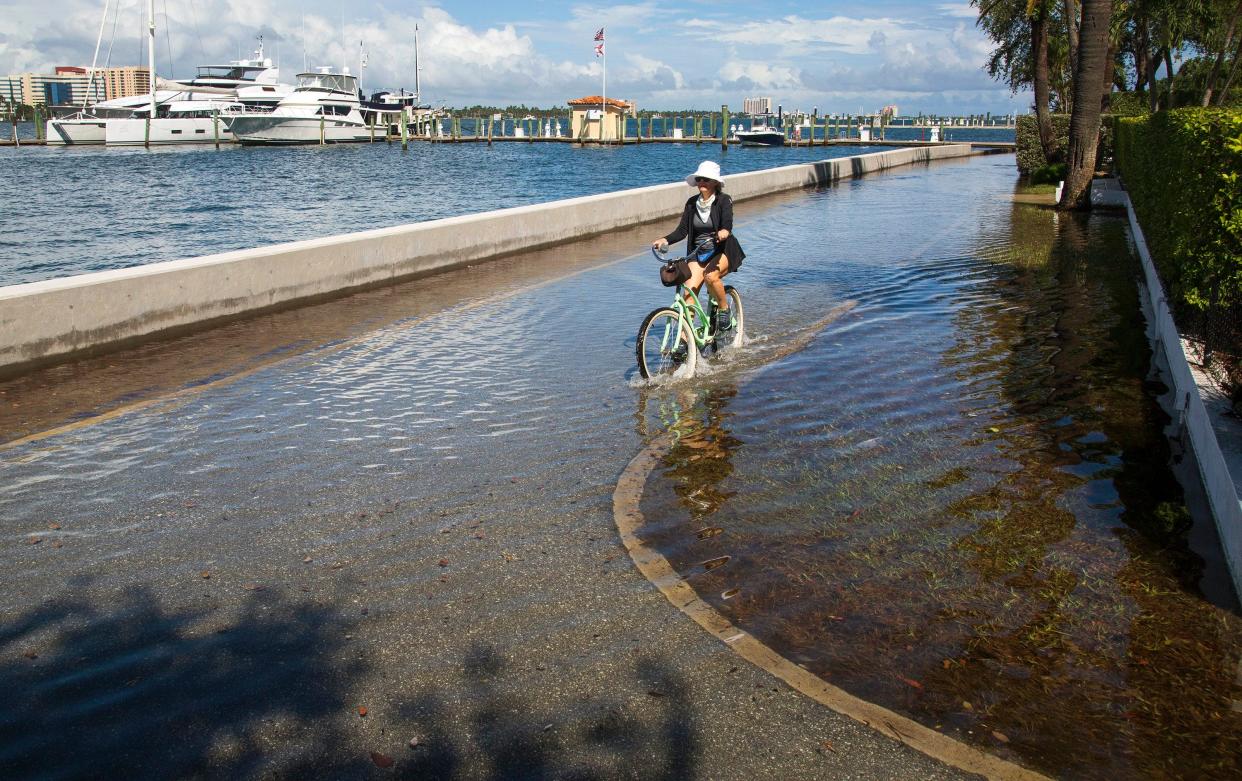Hope plays a key role in climate repair

If there is one takeaway from today’s conversation about climate change, it is the absence of denial about the scope of the challenge. At COP26 last November, heads of state committed to keeping the temperature goals of the Paris Agreement alive. Private sector leaders are also committing trillions of dollars’ worth of climate finance initiatives in pursuit of net zero emissions. This is encouraging progress but not enough.
Most now believe that climate change is real and that action to reduce our impact on the planet is not only needed, but possible, when people come together. But what’s also clear is that we’re not providing the public with enough opportunities to move beyond hand-wringing and include them in identifying solutions. We need more settings that allow people to discuss possibility, feel hopeful and engage in action.
That’s why the Aspen Institute — in partnership with Mayors Dan Gelber, Daniella Levine-Cava and Francis Suarez — is hosting Aspen Ideas: Climate, a major new public event focused on solutions to the climate crisis, in Miami Beach from May 9-12. With the support of Miami-based institutions including the Knight Foundation, Related Group and the Jorge M. Pérez Family Foundation, we’re teaming up to put together an annual convening that will, among other areas, address the implications of rising temperatures and sea levels, which are already being felt by this community and so many others around the world.
There’s no doubt that South Florida is facing the direct impacts of climate change. But it’s not alone. New York City has experienced historic flooding. Fires currently ravage the Southwest. Alaska is thawing at an alarming pace. We understand the implications of rising temperatures and believe that globally we can not afford to go 1.5 degrees over pre-industrial levels by 2100. If we don’t act, many places will be underwater or permanently changed — and with that will be the catastrophic loss of ecosystems, economies and, yes, human lives.
For these reasons, practical solutions are at the heart of Aspen Ideas: Climate, which will bring together voices from across the sciences, policymaking, philanthropy, business, technology, activism and culture. The event will spotlight coastal communities, innovations in clean power generation, “climate-smart” economies, and ways to harness our agricultural and food systems, forests and the ocean to fight climate change. South Florida has much to share across all of these topics as a growing hub for climate innovation and a global showcase for adaptation and resilience. It’s a region the country and the world can look to with hope.
Speakers participating reflect the breadth of perspectives and experience required to tackle a problem as all-encompassing as climate change. We’ll hear from leading policymakers like Speaker Nancy Pelosi, governors from across the U.S., and such local leaders as New Orleans Mayor LaToya Cantrell. The heads of some of the most forward-thinking environmental organizations will attend, including Everglades National Park Superintendent Pedro Ramos and
Sustainable Ocean Alliance Founder Daniela Fernandez. And of course, we’re excited to welcome TODAY weather anchor Al Roker to share his passion for protecting our planet.
Venture capitalist John Doerr will present his views on climate; remarkably timed with this event, he has just now announced $1.1 billion to create a Climate School at Stanford University with perhaps the most significant gift to a university in history. Renowned technologist Eric Schmidt and NBA commissioner Adam Silver will talk about the role of business, tech and money in mobilizing to address climate change. Innovative entrepreneurs will pitch their projects and present their ideas. Pioneering architect Shohei Shigematsu will show us the future of climate-resilient, sustainable design. Importantly, we’re providing a space for our future climate leaders — 100 young adults from across the country — to connect, learn and mobilize to drive change.
There are three critical assumptions embedded in Aspen Ideas: Climate. The first is that local leadership is necessary — but not sufficient. The scale of this crisis necessitates regional, national and global strategies working in alignment. The second is that every sector of our society needs to address this crisis. The third is that hope is critical — a sentiment captured in the title of a song composed for the event by Emilio Estefan: “We’ve Still Got Time.”
If there’s one danger in the absence of denial and in the urgency we now hear and increasingly witness all around us, it’s that we could run the risk of feeling overwhelmed, cynical or despondent about our ability to protect the planet. But that’s exactly the wrong message — and why we need a climate event that energizes, uplifts and focuses us on what we can do. The world is calling out for solutions, and South Florida has many to offer.
Kitty Boone is vice president of public programs at the Aspen Institute and executive director of the Aspen Ideas Festival. This piece is part of the Invading Sea collaborative of Florida editorial boards, focused on the threats posed by the warming climate.
This article originally appeared on Palm Beach Post: Addressing climate change requires public help and hope

